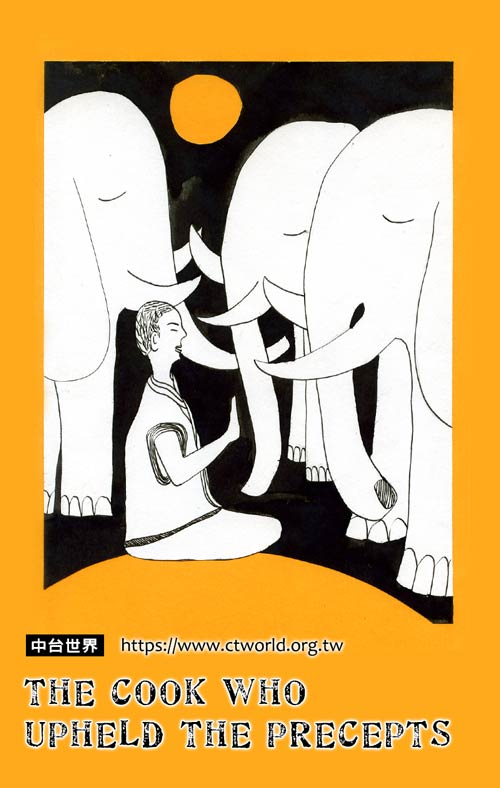
A hundred years after the Buddha’s parinirvana, there was a king who worshipped pagan gods and practiced sacrificial rites. He would command his cooks to slaughter hundreds of cows, sheep, chickens and other animals. One of the cooks, however, was a Buddhist who upheld the precepts and refused to kill any sentient being. His behavior incensed the kitchen officials who reported him to the king.
The king told the cook, “Those who disobey me are put to death.” The cook replied, “I am a follower of the Buddha who has taken the five precepts. I practice the Dharma and would rather die than harm others.” He went on to explain that if he obeyed the king and killed the animals, not only would his life be cut short, but he would be reborn in hell to suffer karmic retribution until his misdeeds were atoned for. Conversely, by observing the precepts, he would surely be reborn in heaven, even if the king chose to execute him. Between these two consequences, upholding the precept of no killing was more important than his own life.
After listening to the cook, the king said, “In seven days you will face a herd of charging elephants. If they do not trample you underfoot, I will accept what you say as true.”
Seven days later, the cook stood in front of the elephants with the dignity and serenity of a buddha. As the elephants were driven into a frenzy and charged at him with breakneck speed, the cook raised his right hand. With this simple gesture, his five fingers transformed into towering mountains bristling with roaring lions. The elephants, frightened and subdued, prostrated themselves on the ground before him. The cook had tamed them by following the example of Buddha, when he tamed an intoxicated elephant set on him by Devadatta hundreds of years ago.
Having seen a miracle with his own eyes, the king gave rise to deep faith in the Three Jewels. Right away, he decreed that all worship and sacrifices to the pagan gods must stop. From then on, the entire court, from ministers to servants, practiced the Dharma and upheld the precepts. The cook left the household life to become a monk, who served as spiritual advisor to the king, trusted and revered by all. Through his unshakable resolve to uphold the precepts, he inspired countless others to do the same.
REFLECTION
Before the Buddha’s parinirvana, he told his disciples to see the precepts as their teacher. Without the precepts, they would be like rootless trees, unable to grow. The precepts are like steps on the path to nirvana, helping us attain samadhi, develop wisdom, and plant merits as provisions for the Way. Like the story shows, upholding the precepts can both deepen our own faith in the Dharma, and also inspire others to cultivate. In this way, it is a bodhisattva practice of benefitting oneself through benefitting others.